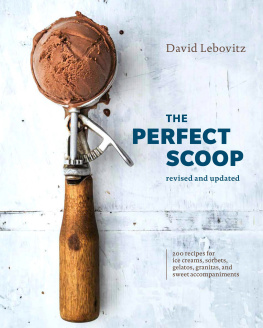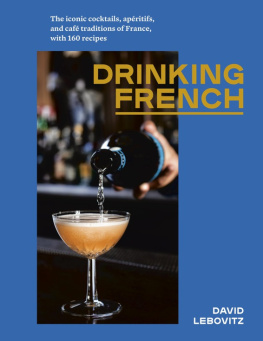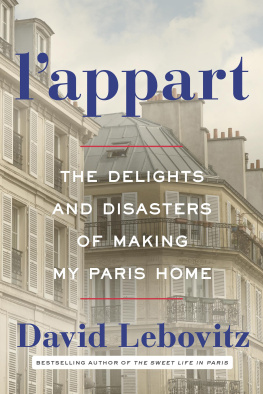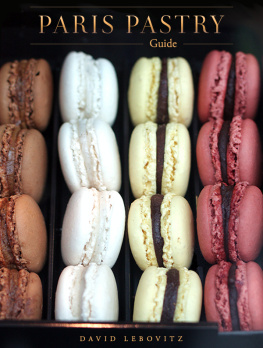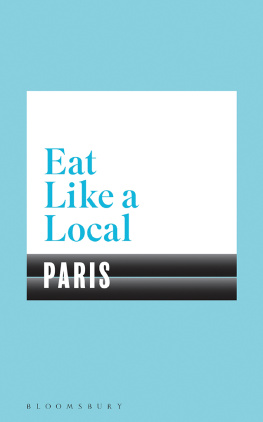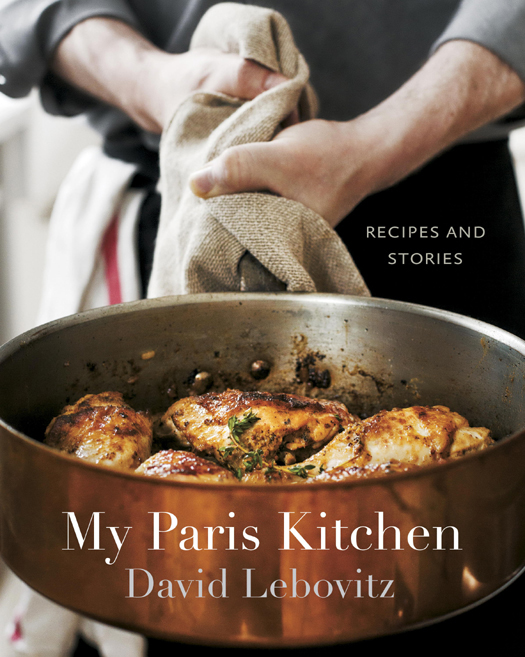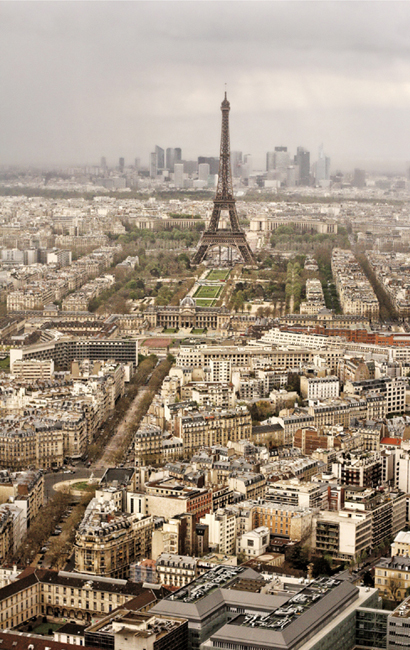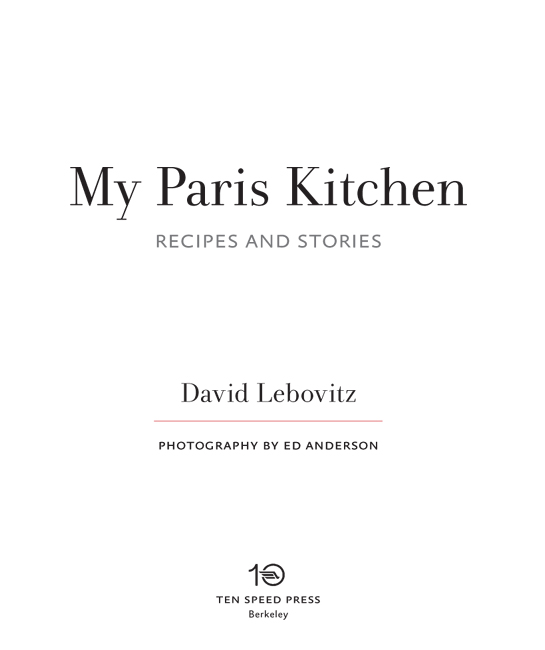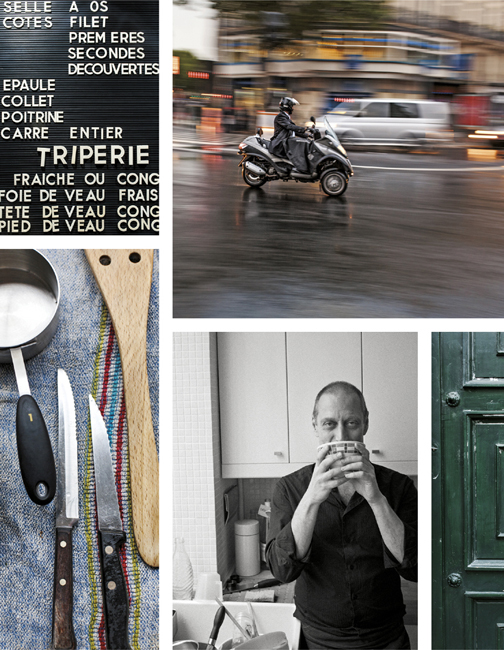Some of the recipes in this book include raw eggs. When eggs are consumed raw, there is always the risk that bacteria, which is killed by proper cooking, may be present. For this reason, always buy certified salmonella-free eggs from a reliable grocer, storing them in the refrigerator until they are served. Because of the health risks associated with the consumption of bacteria that can be present in raw eggs, they should not be consumed by infants, small children, pregnant women, the elderly, or any persons who may be immunocompromised. The author and publisher expressly disclaim responsibility for any adverse effects that may result from the use or application of the recipes and information contained in this book.
Copyright 2014 by David Lebovitz
Photographs copyright 2014 by Ed Anderson
All rights reserved.
Published in the United States by Ten Speed Press, an imprint of the Crown Publishing Group, a division of Random House LLC, a Penguin Random House Company, New York.
www.crownpublishing.com
www.tenspeed.com
Ten Speed Press and the Ten Speed Press colophon are registered trademarks of Random House LLC
All photographs are by Ed Anderson with the exception of those noted here: by David Lebovitz.
Library of Congress Cataloging-in-Publication Data
Lebovitz, David.
My Paris kitchen : recipes and stories / David Lebovitz.
pages cm
Summary: A collection of stories and 100 sweet and savory French-inspired recipes reflecting the way modern Parisians eat today. Provided by publisher.
Includes bibliographical references and index.
1. Cooking, French. 2. CookingFranceParis. 3. Lebovitz, DavidAnecdotes. 4. CookingFranceParisAnecdotes. 5. Food habitsFranceParisAnecdotes. 6. Paris (FranceSocial life and customsAnecdotes. I. Title.
TX719.L4237 2014
641.5944dc23
2013032561
Hardcover ISBN: 978-1-60774-267-8
eBook ISBN: 978-1-60774-268-5
Food styling by Valerie Aikman-Smith
Prop styling by Ethel Brennan
v3.1_r1
Introduction
T HE BIGGEST CHALLENGE I FACED WHEN SETTING UP MY FIRST full-scale kitchen in Paris was not calculating where to put the oven in relation to the refrigerator or what kind of fancy countertops I should have. It was not deciding what kind of flooring to install or where I would store my pots and pans. Or even whether my oven should be gas or electric. It was the sink.
After a decade of living in France, I had finally made the decision to buy a place to call my own. People always assumed that I had a designer-style expansive chefs kitchen, when I actually worked on a kitchen counter the size of a chessboard. Moving bowls and pots and pans around, I was persistently checkmated by the limited space. Sometimes I would empty the contents of a mixing bowl, then stand there holding the bowl suspended in mid-air, wondering where I wouldor even if I couldput it down. (Many times I had no choice but to open the window and put it on the roof.) The temperature in the faltering oven fluctuated haphazardly a hundred degrees in either direction, which required me to stand guard while a batch of cookies baked away, fiddling with the knobs like a crazed person searching for just the right radio station, to make sure my chocolate chip cookies would be perfectly baked. (And it didnt help that sometimes I had to use a chair to hold the door closed, either.) Yet, somehow, in that inevitable way that people adapt to their circumstances, whatever and wherever they are, I made it work. It was hard to complain when many of my friends in Paris had apartments without ovensor even kitchens. (And some didnt have bathrooms, either, requiring them to use a communal WC shared with neighbors on the same floor. So I guess I got lucky when I rented that first apartment sight unseen.)
How did I end up in this semi-functional kitchen? When I first arrived all those years ago and was searching for a place to live, I saw a listing for a chambre de bonne (maids quarters) that was, admittedly, trs charmante . And I sent off my deposit. When I arrived, I learned that in the multicultural jargon of real estate, charmante meant charming (in either language), but it was also quite cozy (i.e., small). I was enthralled by the Eiffel Tower standing majestically in front of me, and I loved being able to see right into the historic Place des Vosges, which was just down the street. However the apartment needed more work than I anticipated (or was alluded to by the photos online).
My first task was removing the gnarled, dead plant vines that crept all the way up the walls and across the ceiling of one of the two rooms. The vines had been stapled firmly in place, even though it was pretty obvious they werent going anywhere on their own ever again. And the refrigerator was full of leftovers from the previous tenants, who had departed a few months prior to my arrival. But after a couple of months of cleaning it up, I had a tiny but workable kitchen where I would be able to cook and bake to my hearts content.
Shortly after I arrived I discovered that quite a few locals assumed I didnt know anything about food because Im an American. Many felt it was their duty to set me straight, like the time I was at a press lunch, and a journalist decided to educate lamricain about the various greens in our salads. She kept plucking out individual leaves, holding them up, and identifying each one for me. Only after she got the third one in a row wrong did I bother to correct her.
Having moved from San Francisco, where I cooked professionally for several decades, taking part in the farm-to-table renaissance, I was not only well aquainted with the different varieties of lettuce, but I could also rattle off the multiple varieties of peaches, strawberries, plums, figs, and apricots that showed up at our local markets each season. I had worked for thirteen years at Chez Panisse, where farmers raised animals specifically for us, and local gardeners showed up at our back door with paper bags bursting with sunny Meyer lemons or ripe figs picked from their trees that morning, with their sugary juices oozing out through the cracks. Gardeners for the restaurant showed up right before dinner service with tangles of the tiniest salad greens one could imagine, scattered with edible flowers that grew alongside the lettuces. I had friends in the Bay Area who roasted and ground cocoa beans they sourced themselves, turning the liquid chocolate that poured out of the machines into tablets of shiny, bean-to-bar chocolate. And the pains au levain that came out of the ovens at Acme Bakery in Berkeley and Tartine in San Francisco were just as good as anything you could get in Paris. So why was I in France?
Thats a question Im frequently asked. And I never have a precise answer. Id always enjoyed visiting Paris and had taken a couple of vacations here, as well as pastry courses at lcole Lentre. But I wasnt one of those people who filled their home with French antiques and rustic Provenal artifacts, dreaming of the day that Id move to France. My experiences with Parisians, like most visitors, had mostly been with hotel desk clerks, waiters, and shopkeepers. And while these encounters had been pleasant, I hadnt interacted with any Parisians in typical day-to-day affairs. I didnt speak a word of French, and I had only two friends who lived here (who eventually moved away, something I learned to get used to as an migr). The truth is, I just up and left San Francisco without a plan. And thats my story.


